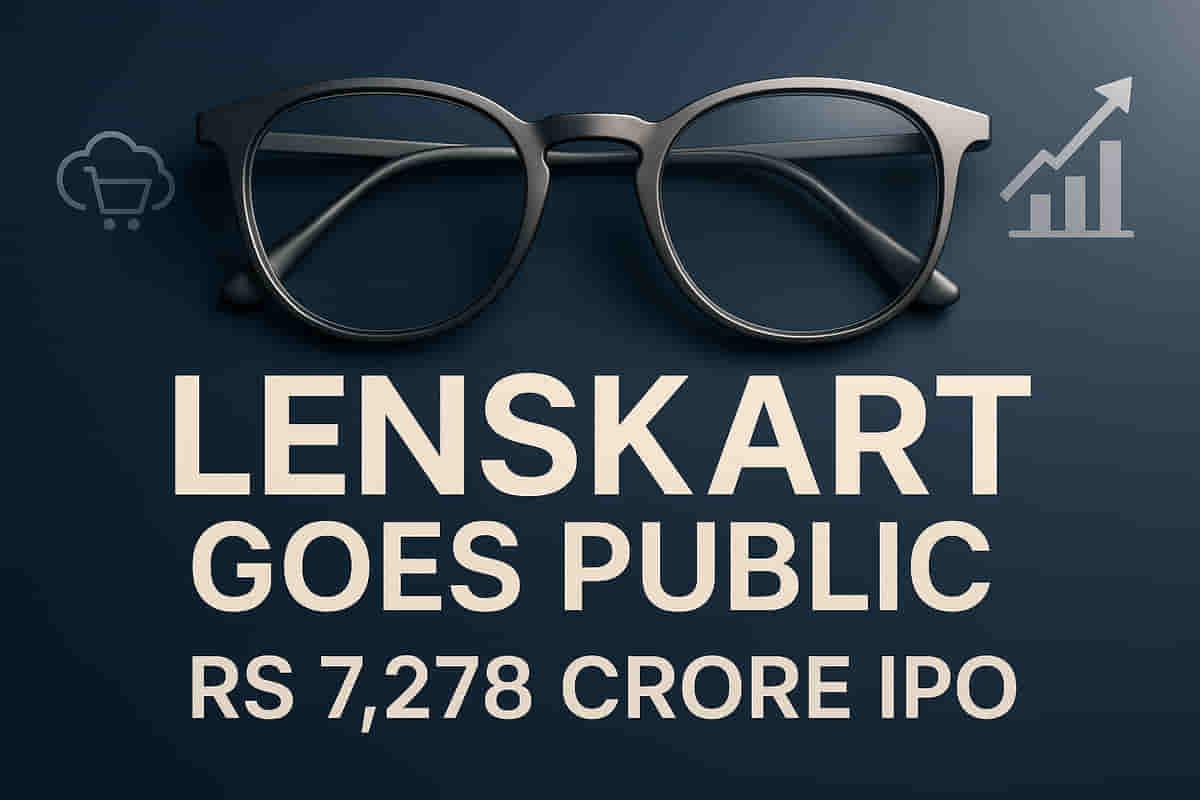Lenskart Prepares for Rs 7,278 Crore IPO, Aims to Prove Profitability Over Promise in Public Markets
Consumer Products
|
30th October 2025, 5:08 AM

▶
Short Description :
Detailed Coverage :
Lenskart, the popular eyewear retailer, is preparing for a massive Initial Public Offering (IPO) worth Rs 7,278 crore. This move marks a new chapter for the company, which aims to convince public market investors that its strategy of convenience, design, and data-driven operations can translate into sustained profitability. The company, founded by Peyush Bansal, Amit Chaudhary, Neha Bansal, and Sumeet Kapahi in 2008, started as an online seller of contact lenses and expanded to prescription glasses and sunglasses, now valued at Rs 69,500 crore according to its DRHP filing.
Initially an online-only player, Lenskart recognized the need for a physical presence and opened its first offline store in 2013, adopting a franchise model. Today, it operates over 2,600 stores globally, with 2,067 in India, using these as experience centers for eye tests and product trials, complementing its digital supply chain efficiencies.
Financially, Lenskart has shown significant improvement. For the first quarter of FY26, it reported a profit of Rs 61.2 crore, a substantial turnaround from a loss of Rs 10.9 crore in the same period last year. Revenue from operations increased by 24.6% year-on-year to Rs 1,894.5 crore, driven by store expansion, strong online and offline demand, and international sales.
The company leverages in-house technology for automated manufacturing facilities and innovative customer tools like 3D virtual try-ons and AI-based frame fitting, aiming to personalize experiences and improve efficiency. Its marketing has evolved from a discount player to a fashion-oriented brand, incorporating celebrity endorsements and international acquisitions like Owndays and Meller.
However, Lenskart has faced criticism regarding its marketing of blue-cut lenses and customer reviews on platforms like Trustpilot highlight issues with product durability and after-sales service. The IPO aims to raise Rs 2,150 crore in fresh equity, with the remainder through an offer-for-sale by existing shareholders, including major backers like SoftBank and Temasek.
Impact: This IPO will significantly test investor confidence in consumer tech startups that emphasize growth and tech innovation. Its success could pave the way for other similar companies, while any missteps could create caution. Rating: 8/10.
Difficult Terms: * Public Issue (IPO): An Initial Public Offering (IPO) is when a private company first sells its shares to the public to raise capital. * DRHP Filing: Draft Red Herring Prospectus (DRHP) is a preliminary document filed with the market regulator before an IPO, containing details about the company and the offer. * Offer-for-sale: In an offer-for-sale (OFS), existing shareholders sell their shares to new investors, and the money goes to the selling shareholders, not the company. * Vertically integrated manufacturing: This means a company controls multiple stages of its production process, from raw materials or design to final manufacturing and distribution. * Turnaround times: The time it takes from receiving an order to delivering the finished product. * Blue-cut lenses: Eyeglasses designed to filter out blue light emitted from digital screens, claimed to reduce eye strain. * Net worth: The total value of a company's assets minus its liabilities. * Customer acquisition costs: The expense incurred by a company to convince a customer to buy its product or service.